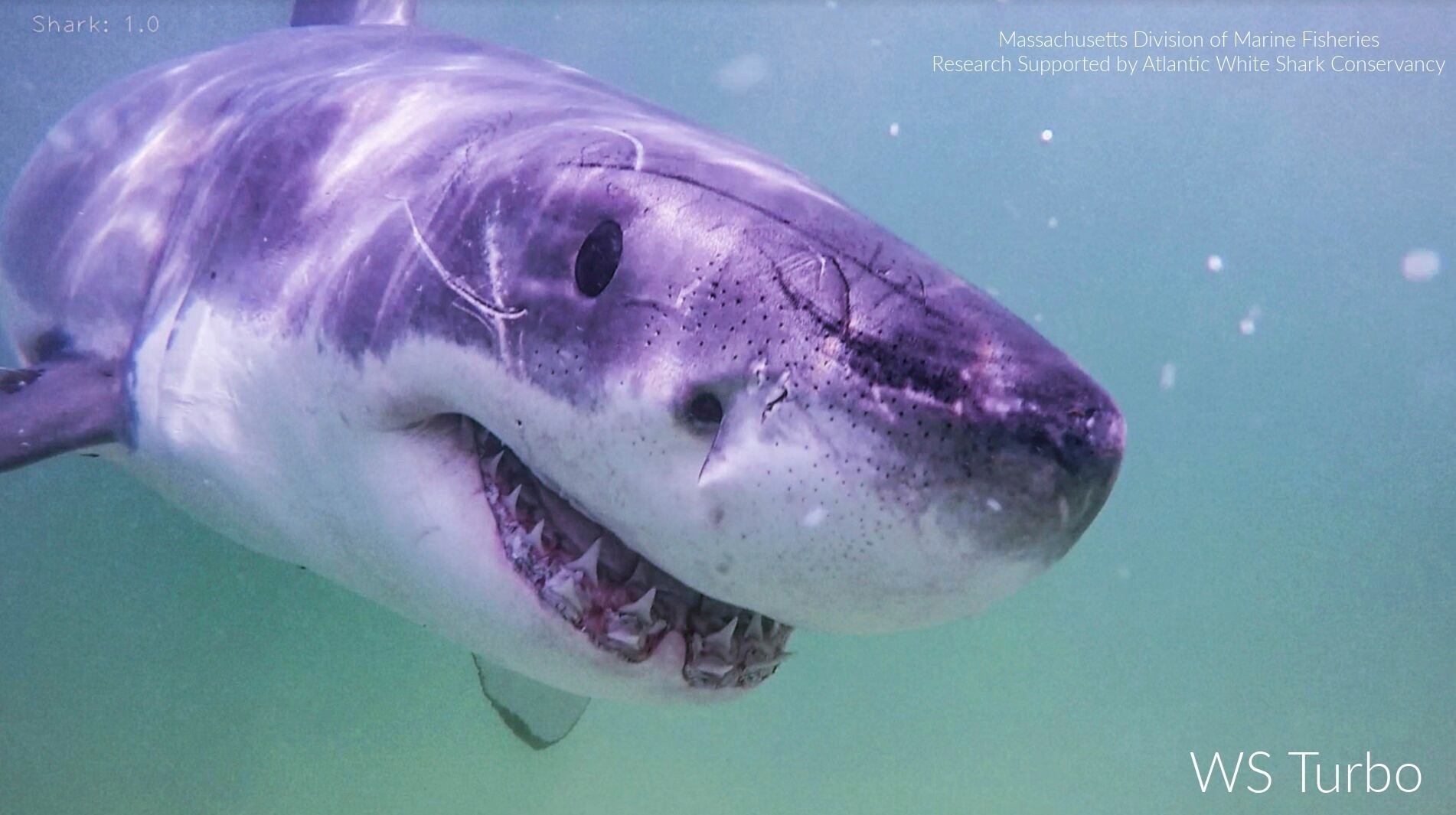Maine’s ScarboroughBefore spotting a great white shark, one of the ocean’s most well-known predators, Rick Clough spent over forty years fishing off the coast of Maine for lobsters and sea urchins.
Even while Clough acknowledged that he wasn’t sure he would like to go urchin diving right now, the 8-foot (2.4-meter) shark that was spotted near the coastal resort of Scarborough in July startled him and didn’t make him fear the ocean.
Suggested Videos
People who spend time in the cold seas of New England and Atlantic Canada, such as fisherman, boaters, and beachgoers like Clough, are learning to coexist with great white sharks, who were made famous by the 1975 movie Jaws.Once extremely uncommon, sightings of the apex predators have increased in regions like Maine.
Beachgoers are normally quite safe from shark bites, according to scientists, who attribute the increased sightings of white sharks to the greater availability of the seals that the sharks eat. Although the majority don’t get that large, the sharks can reach lengths of about 20 feet (6 meters).
Earlier this month, David Lancaster, a commercial clam digger in Scarborough, used a drone to capture a glimpse of a roughly 12-foot (3.6-meter) shark close to the town’s well-known beaches. The animal was stunning and truly remarkable to see, according to him. However, he added that the shark’s presence served as a reminder to him that swimmers must watch out for large fish.
Great Whites are heading north, but why?
The Atlantic White Shark Conservancy has recorded hundreds of great white sharks over more than ten years, and sightings of the creatures near Cape Cod, Massachusetts, have increased in frequency in recent years. Greg Skomal, a seasoned white shark researcher and senior fisheries scientist with the Massachusetts Department of Marine Fisheries, stated that fresh evidence indicates the sharks are moving even further north into fresh Hampshire, Maine, and beyond.
Skomal et al.’s May publication in the journal Marine Ecology Progress Series found that the number of white sharks spotted off Halifax, Nova Scotia, increased around 2.5 times between 2018 and 2022. According to the report, the number identified in the Cabot Strait, which divides Nova Scotia and Newfoundland, grew by almost four times further north.
According to Skomal, the average length of stay in these northern seas has also grown from 48 to 70 days, indicating that white sharks seem to be getting more accustomed to living further north.
The successful protection of seals off New England and Canada through legislation like the Marine Mammal Protection Act appears to be a major factor in the change, according to Skomal. This has allowed seals to flourish and provide as a food supply for predatory sharks.
According to Skomal, it can be the result of an expanding prey base. Seals would be that.
Sharks are also protected.
Protections for great white sharks also include a 1997 ban on fishing for them in federal waters in the United States. The International Union for the Conservation of Nature continues to classify them as vulnerable.
After fishermen in 2024 decided to still pursue white sharks, Massachusetts’ marine fisheries department stated it tightened its fishing regulations. Certain types of heavy fishing gear were banned by the state in coastline areas where white sharks are most frequently observed.
“We think it’s not safe to target white sharks from the beach here in Massachusetts,” Skomal added. Not just because it might kill the shark, but also because it might pose a risk to public safety.
Dangerous interactions between white sharks and people are extremely uncommon, despite the sharks’ size and power. According to the Florida Museum of Natural History’s International Shark Attack File, there have been less than 60 fatal great white shark bites on people worldwide in recorded history.
Coexisting with Great Whites
Julie Dimperio Holowach, 63, was killed by a great white shark off Bailey Island in 2020, the first known fatal shark attack in Maine.
It is a very uncommon occurrence. However, we’re sharing all of this information to help people behave better and ideally prevent any unfavorable interactions between people and sharks, said Ashleigh Novak, the Atlantic White Shark Conservancy’s research coordinator.
Shark sightings have gone viral in recent summers due to the advent of social media. Shark spotters can also report their sightings via the Sharktivity smartphone app.
According to surfer Lancaster, New Englanders will simply have to get used to live with great whites.
According to Lancaster, it’s absurd that they exist as surfers and fisherman, and we have to accept that. Although it’s at the back of your mind, you must come to terms with it.
___
In Scarborough, Maine, photojournalist Robert F. Bukaty of the Associated Press contributed to this story.
___
The Walton Family Foundation provided money for this story. All content is entirely the AP’s responsibility.








